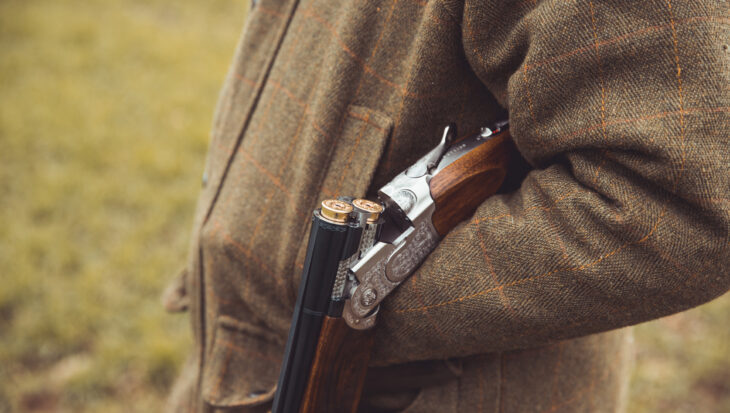Ban on the use of lead shot – finally!
Posted 10 Jul 2025

Posted on the 31st July 2015
From the 12 August, a minority of wealthy, idle ‘sporting’ types will be ferried to grouse butts on some of the country’s most beautiful upland areas. There, they will laze until beaters scare hundreds of grouse into their sights, just so that the shooters can practise their aim and blast their victims from the sky. There will be fine food, champagne and a large amount of ego on display. There has been little opposition to this tradition of excess and cruelty, but those times are changing.
Grouse shooting has rarely been under so much fire. Animal rights groups have long argued that the hype surrounding the Glorious Twelfth is a smokescreen used to obscure the enormous animal cruelty involved in ‘sport’ shooting. As well as the half a million grouse nurtured for shooting each year, grouse moor operators snare, trap, poison and shoot vast numbers of other animals and birds labelled as ‘pests’ or ‘vermin’ in order to keep their quarry ‘safe’ for wealthy guns.
Over the years, Animal Aid has gathered crucial evidence highlighting the wrongdoings of grouse moor owners. Our investigations and briefings have attracted growing ranks of supporters who object to the killing spree. From conservationists, concerned about the illegal persecution of birds of prey, to environmentalists, distraught over the burning and draining of the precious peat bogs in upland areas, the number of people campaigning against grouse shooting is greater than ever.
In July this year, the RSPB published a damning new study into the extent of burning across upland areas in Britain. It looked in detail at 45,000 square kilometres of uplands across Scotland, England and Wales, and found that burning had occurred in 55 per cent of Special Areas of Conservation (SACs) and 63 per cent of Special Protection Areas (SPAs). Most worrying, however, was its conclusion that moorland used for grouse shooting saw an 11 per cent increase in burning activity year-on-year between 2001 and 2011. This is at a time when concern is growing about the imminent effects of climate change.
Grouse moor owners drain and burn moorland in order to encourage the growth of heather, upon which their quarry – grouse – feed. Both of these practices have been widely criticised, because upland deep peat is the largest carbon store in the UK. Draining and burning leads to carbon loss and damages the ground’s ability to act as a carbon store. The uplands are also vital to water supplies and burning them leads to water discolouration and deterioration in quality.
Although moor owners have been put under pressure to block the drainage ditches, known as ‘grips’, burning precious peat bog is still permitted by government agencies, such as Natural England. In March 2014, the RSPB announced that it had discovered at least 127 separate agreements under which Natural England had ‘consented’ to burning taking place on legally protected blanket bog habitats. Many of these schemes to ‘protect’ or enhance upland areas are paid for by taxpayers via EU subsidies.
When it comes to local campaigning, the group Ban Bloodsports on Ilkley Moor exemplifies how much can be achieved. The group has put enormous pressure on Bradford Council to justify its decision to grant shooting rights to the Bingley Moor partnership on the publicly owned moor. Last year, in a show of defiance, campaigners held peaceful picnics on the moor just as the shoot season commenced, and more recently have engaged the support of local ramblers, runners and other users of the moor. So far the group has managed to get the council to agree to a ban on the traps and snares used to kill wildlife, and there is little doubt that more concessions to the campaigners will follow.
The issue of bloodsports, including grouse shooting, is firmly back in the public eye. Despite the government’s attempts to protect these activities, the opposition is well prepared with arguments that are scientific and watertight. What’s more, campaigners against grouse shooting now constitute a diverse, determined and unified force.
Posted 10 Jul 2025

Temperatures are rising and it’s time to get outdoors, enjoy the weather and tuck into some delicious vegan food! Thanks to an abundance of plant-based options now available, there’s an alfresco option for every tastebud...
Posted 09 Jul 2025
